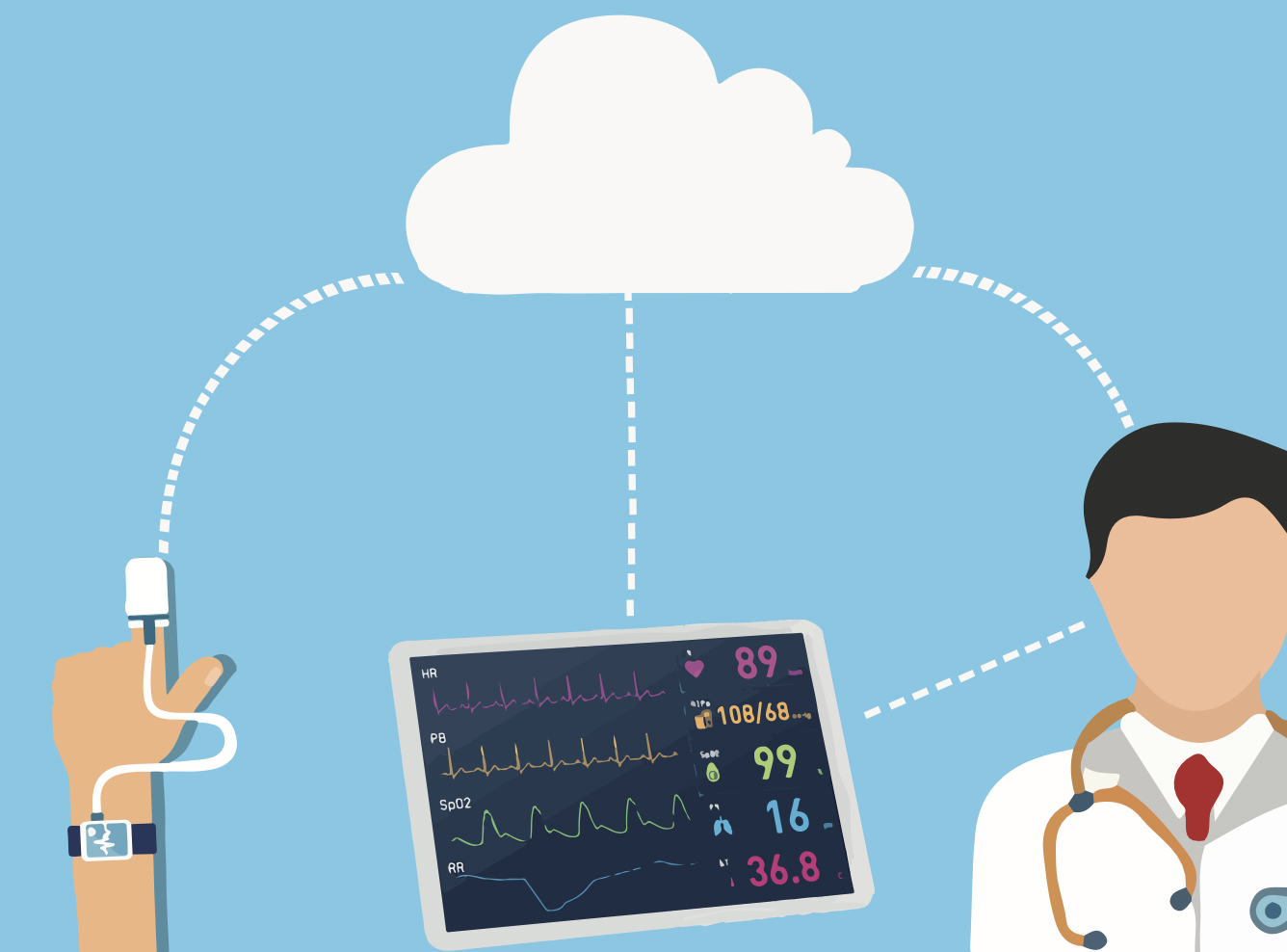In recent years, the healthcare industry has witnessed a transformative shift driven by the integration of artificial intelligence (AI) technologies. Among the various applications of AI in healthcare, AI-powered health tools have emerged as a game-changer in patient monitoring. These tools not only enhance the efficiency and accuracy of monitoring but also pave the way for proactive and personalized patient care. This article delves into how AI health tools are revolutionizing patient monitoring, the benefits they offer, and the challenges that lie ahead.
The Evolution of Patient Monitoring
Traditionally, patient monitoring relied heavily on manual processes and periodic check-ups. Healthcare professionals would collect patient data during visits, which was then used to make diagnostic and treatment decisions. While this approach has been effective to some extent, it often falls short in providing real-time insights and continuous monitoring, especially for patients with chronic conditions or those requiring intensive care.
The advent of digital health technologies marked the beginning of a new era in patient monitoring. Wearable devices, mobile health apps, and telemedicine platforms started to offer more dynamic and accessible ways to track patient health. However, the integration of AI health tools has further amplified these capabilities, making patient monitoring more precise, efficient, and individualized.

How AI Health Tools Enhance Patient Monitoring
1. Real-Time Data Analysis
One of the most significant advantages of AI-powered health tools is their ability to analyze vast amounts of data in real-time. Wearable devices and sensors continuously collect data on various health parameters such as heart rate, blood pressure, glucose levels, and more. AI algorithms process this data instantaneously, providing healthcare providers with timely insights into a patient’s health status. This real-time analysis allows for immediate intervention if any anomalies are detected, potentially preventing adverse events.
2. Predictive Analytics
AI health tools excel in predictive analytics, which involves forecasting potential health issues based on historical and real-time data. By identifying patterns and trends, AI can predict the likelihood of certain conditions, such as heart attacks, strokes, or diabetic complications. This predictive capability enables healthcare providers to take proactive measures, such as adjusting treatment plans or recommending lifestyle changes, thereby improving patient outcomes.
3. Personalized Care
AI-powered health tools facilitate personalized care by tailoring monitoring and treatment plans to individual patients. Machine learning algorithms analyze data from multiple sources, including electronic health records (EHRs), genetic information, and patient-reported outcomes, to create a comprehensive health profile. This personalized approach ensures that interventions are more targeted and effective, addressing the unique needs of each patient.
4. Remote Monitoring
Remote patient monitoring has gained immense popularity, especially in the wake of the COVID-19 pandemic. AI health tools enable continuous monitoring of patients from the comfort of their homes, reducing the need for frequent hospital visits. This not only enhances patient convenience but also alleviates the burden on healthcare facilities. Remote monitoring is particularly beneficial for managing chronic conditions, post-operative care, and elderly patients who may have mobility issues.
5. Enhanced Decision Support
AI-powered health tools provide valuable decision support to healthcare professionals. By integrating AI with clinical decision support systems (CDSS), healthcare providers can access evidence-based recommendations and predictive insights. This assists in making informed decisions, reducing diagnostic errors, and optimizing treatment plans. For instance, AI algorithms can suggest the most appropriate medication dosages or flag potential drug interactions, enhancing patient safety.

Benefits of AI-Powered Patient Monitoring
1. Improved Patient Outcomes
The primary goal of patient monitoring is to improve health outcomes, and AI health tools play a pivotal role in achieving this objective. By enabling early detection of health issues, personalized interventions, and continuous monitoring, AI-powered tools contribute to better disease management and overall patient well-being.
2. Cost Efficiency
AI-powered health tools can significantly reduce healthcare costs by minimizing hospital readmissions, emergency room visits, and unnecessary tests. Predictive analytics and remote monitoring help in early intervention, preventing complications that require expensive treatments. Moreover, AI-driven automation streamlines administrative tasks, freeing up healthcare professionals to focus on patient care.
3. Enhanced Patient Engagement
AI health tools empower patients to take an active role in managing their health. Wearable devices and mobile apps provide patients with real-time feedback on their health metrics, encouraging them to make healthier lifestyle choices. Additionally, AI-powered chatbots and virtual assistants offer personalized health advice and reminders, fostering better patient engagement and adherence to treatment plans.
4. Scalability
AI-powered health tools are highly scalable, making them suitable for diverse healthcare settings, from large hospitals to rural clinics. The ability to monitor multiple patients simultaneously and analyze data at scale ensures that healthcare providers can deliver quality care to a broader population.
Challenges and Considerations
While AI-powered health tools offer numerous benefits, their implementation is not without challenges. Addressing these challenges is crucial to realizing the full potential of AI in patient monitoring.
1. Data Privacy and Security
The collection and analysis of sensitive health data raise concerns about privacy and security. Ensuring robust data protection measures and compliance with regulations such as the Health Insurance Portability and Accountability Act (HIPAA) is essential to maintain patient trust and confidentiality.
2. Integration with Existing Systems
Integrating AI health tools with existing healthcare systems, such as EHRs and hospital information systems, can be complex. Interoperability issues and data silos may hinder seamless data exchange and analysis. Developing standardized protocols and fostering collaboration among stakeholders are key to overcoming these challenges.
3. Ethical Considerations
The use of AI in healthcare raises ethical questions related to bias, transparency, and accountability. AI algorithms must be designed and validated to ensure fairness and accuracy, avoiding biases that could adversely affect patient care. Additionally, transparent communication with patients about the role of AI in their care is essential to build trust.
4. Training and Adoption
Healthcare professionals need adequate training to effectively utilize AI-powered health tools. Overcoming resistance to change and fostering a culture of innovation within healthcare organizations are vital for successful adoption. Continuous education and support can help clinicians embrace AI technologies and integrate them into their practice.
Conclusion
AI-powered health tools are revolutionizing patient monitoring by providing real-time insights, predictive analytics, personalized care, and remote monitoring capabilities. These advancements lead to improved patient outcomes, cost efficiency, enhanced patient engagement, and scalability. However, addressing challenges related to data privacy, integration, ethics, and training is crucial for the successful implementation of AI in healthcare.
As AI technologies continue to evolve, the future of patient monitoring looks promising. By harnessing the power of AI, healthcare providers can deliver more proactive, precise, and patient-centered care, ultimately transforming the landscape of healthcare delivery.












